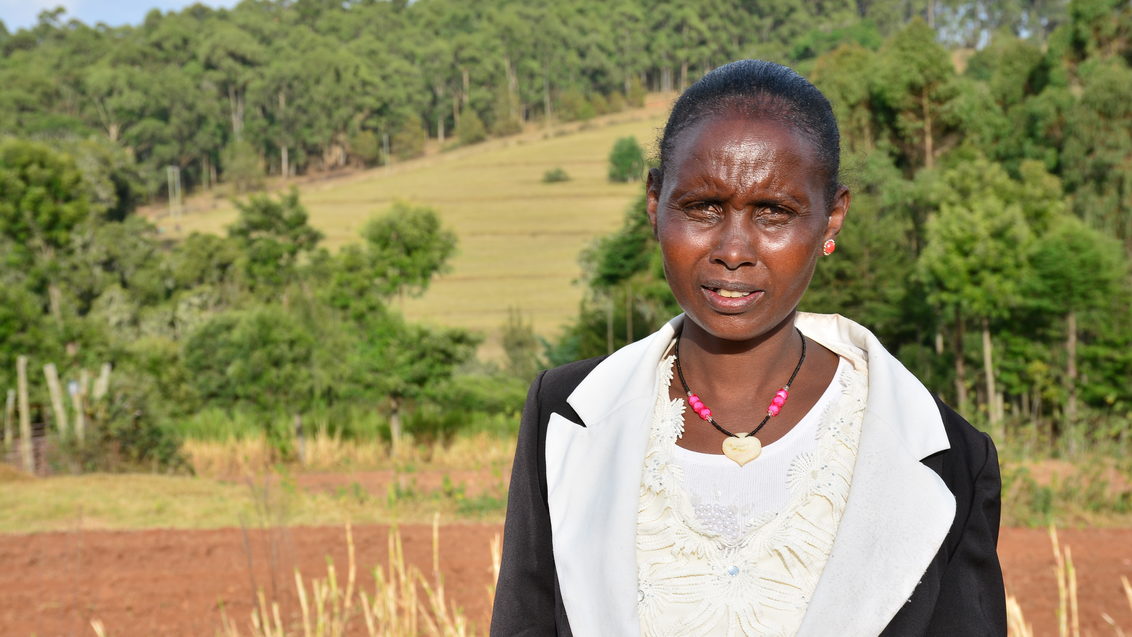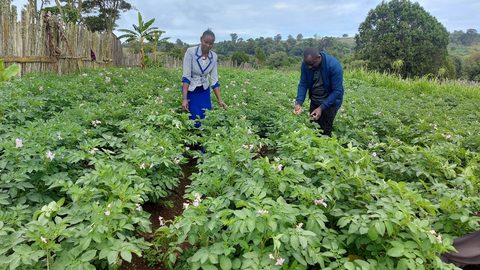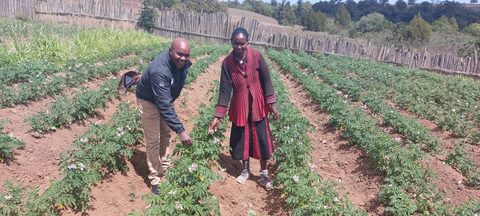In her words: potato farmer says what it's like

Syngenta Foundation for Sustainable Agriculture Seeds2B Africa, within its USAID-funded PASTTA project in Kenya, is making efforts to empower women, and farmers, through seed access. In the last four years, the project has made tremendous efforts to promote and adopt an inclusive strategy in empowering vulnerable households who have taken up improved crop varieties for better income and food security.
Agnes Letowon, one of our female farmers, is among many beneficiaries who attest to the project’s impact. She is based in Samburu, a large pastoralist community in the northeastern part of Kenya.
This was her story in February 2021: “I am the treasurer of the Poro Potato Group, organized by the Syngenta Foundation in Samburu. Initially, we relied on traditional farming technologies including recycling seeds, if any, for smallholder crops. We were uninformed about potato as a crop and even which varieties were available. We used to buy traded potatoes and tried planting them, but they did not do well since we did not understand how to farm potatoes. We suffered severe losses on our farms due to pests and diseases. We didn’t know about the best crop protection practices, or mechanized farming with planters and harvesters – as we heavily relied on human labor. We are glad to have been introduced to better seeds and mechanization farming by Syngenta Foundation Kenya. Through numerous field day events, we have learned about various potato agronomic practices, value chains, and markets. Together with my fellow women, I now have the confidence to continue with potato farming to enable my farm to have food, sell the surplus, and even educate and purchase clothes for my family.”
A few months later, in September 2021, we caught up with Agnes again: “As a woman, I took up farming potatoes because I know the pain of seeing my children go without food. I have learned to prepare my land adequately and use the correct fertilizer as guided. When my plants were attacked by pests, I utilized the correct crop protection mechanisms. Many women have admired this new activity here in Samburu and are willing to join my women’s group. They are devastated by our reliance on pastoralism and some traditional crops which don’t do well due to inadequate rainfall and diseases, which may then cause food shortages. Women with little children want to introduce potato-based meals into their household diet. We will continue with this journey and – hopefully – get sustainable access to high-quality potato seeds even if Syngenta Foundation departs. I thank the Syngenta Foundation for such a noble gesture in coming to us in this far land, away from the productive agricultural areas preferred by many organizations.” In its ambitious, forward-looking strategy, the Seeds2B Africa program will continue to support these special communities to empower them, thereby contributing to the larger goal of poverty reduction and gender empowerment. The participation of women from a marginalized community in this project is truly noteworthy.
*PASTTA is the Partnership for Seed Technology Transfer in Africa between USAID and the Syngenta Foundation for Sustainable Agriculture (SFSA). It primarily focuses on transferring seed-related technologies to smallholders, in order to increase their harvests and income.
Numbers in 2020/21 involved in PASTTA
- Over 400 (32% women) new pastoralists trained on potato farming, accessing quality potato seed on 25-30 acres seasonally.
- $220,000 income was generated for Samburu farmers from the 440 tons of potato produced during the 2021 long rain season.
- 223 youths participated in field training events in Samburu.
- 5 field day training in Samburu.


